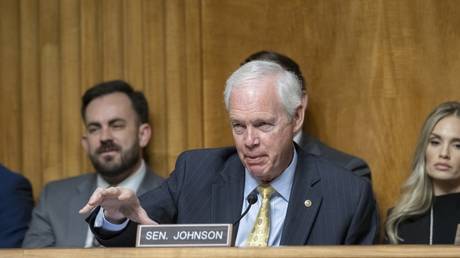ARTICLE AD BOX

Health and Human Services Secretary Robert F. Kennedy Jr.'s "Make America Healthy Again" campaign is being criticized for using "misleading" information in its official report on children's health.
In "MAHA Report: Making Our Children Healthy Again" released Thursday, the White House "blamed exposure to environmental toxins, poor nutrition and increased screen time for a decline in Americans’ life expectancy" and declared, “today’s children are the sickest generation in American history in terms of chronic disease," according to The Washington Post.
The MAHA report also "casts doubt on the current vaccine schedule and medications deemed safe by most in mainstream medicine," the Post said, adding that "several sections of the report offer misleading representations of findings in scientific papers."
Examples included a claim that "virtually every breastmilk sample … tested in America contains some level of persistent organic pollutants," and a claim that there is “limited scientific inquiry into vaccine injury and potential links to chronic disease.”
EXCLUSIVE: Trump accused of new grift that puts Qatari plane in shade
The Post said the language in the report "echoes the positions of anti-vaccine activists, including Kennedy, who have fixated on the cumulative effects of the immunization schedule to cast doubt on vaccination."
A Yale University expert on vaccine policy told the Post there was "little biological basis to argue the series of shots could be harming children by overwhelming their immune systems."
“We are seeing a very familiar playbook, but we are now seeing it from the highest levels of our government’s health agencies rather than the margins of the anti-vaccine conversation," said associate professor of public health Jason Schwartz.
In a section on the "over medicalization of kids," the MAHA report "argued psychiatric and weight loss drugs pose long-term risks for children," the Post piece said.
"Max Wiznitzer, a professor of pediatrics and neurology at Case Western University and a specialist in ADHD, said the research cited in the report to cast doubt on the long-term effectiveness of stimulants is flawed," wrote the Post reporters.
In addition, they wrote, "Specialists in childhood obesity previously told The Washington Post that existing evidence justifies the use [of weight loss medications] when studies have demonstrated their safety and efficacy."
.png)
 3 hours ago
5
3 hours ago
5








 English (US)
English (US)